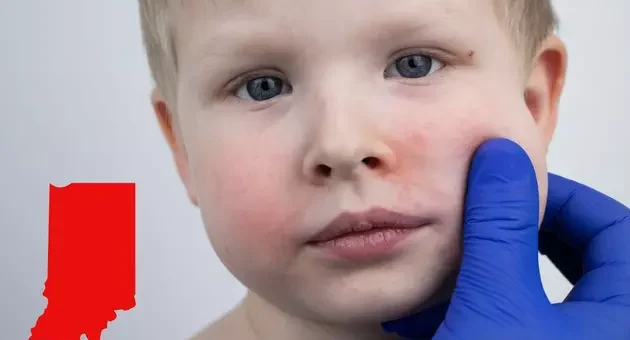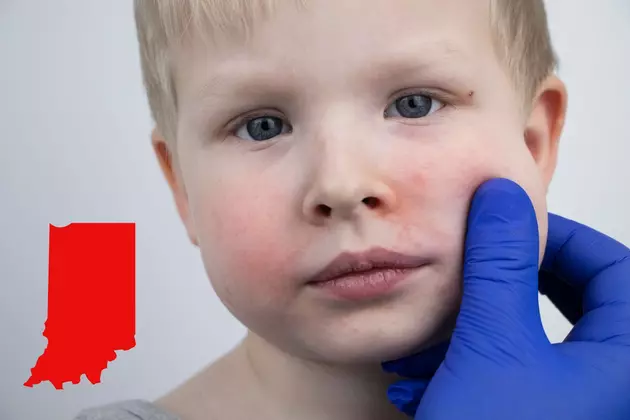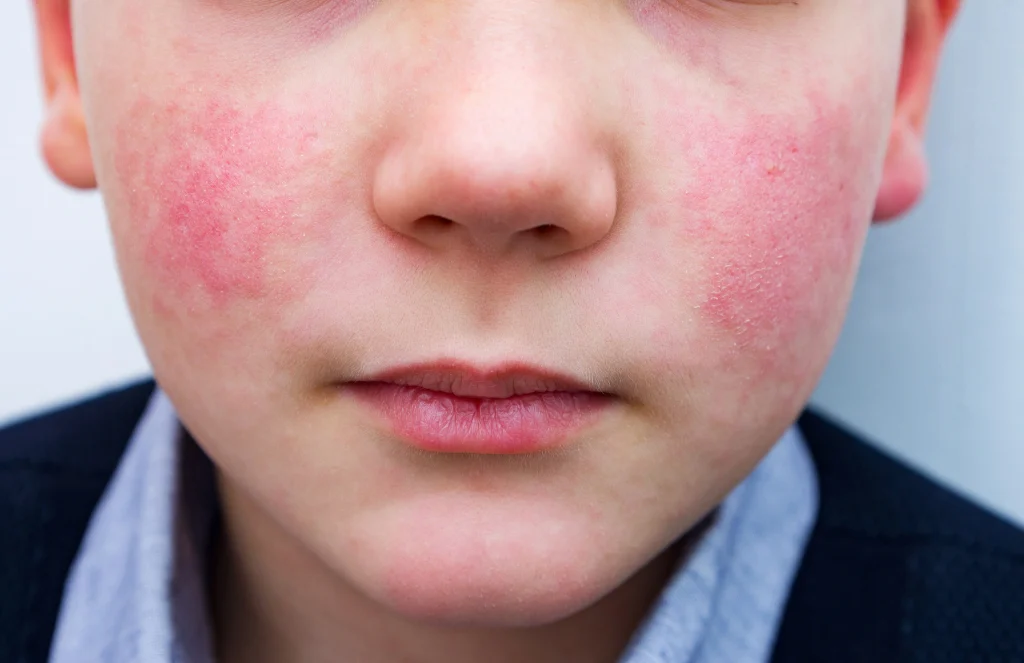
INDIANA – The Centers for Disease Control and Prevention (CDC) has issued an alert for health officials in Indiana and the U.S. regarding an unusually high number of cases of human Parvovirus B-19.
Parvovirus B19 is a seasonal respiratory virus transmitted through respiratory droplets by people with symptomatic or asymptomatic infection.
Fifty percent of susceptible people are infected after household exposure, and 20–50 percent of susceptible students and staff are infected during school outbreaks.
While this disease usually spreads quickly in school-aged children, health officials are concerned as cases rise among all age groups. While symptoms in children may be mild, this disease can be more severe in adults.

Parvovirus B19 infection usually causes no symptoms or mild illness, such as flu-like symptoms, “slapped cheek” rashes, and joint pains. In individuals with blood disorders or a weakened immune system, infection can cause a low blood count. Infection during pregnancy can sometimes lead to additional complications.
Some people who get infected with this virus will have no symptoms.
When symptoms of parvovirus B19 infection occur, they are usually mild and may include the following:
- Fever
- Headache
- Cough
- Sore throat
- Rashes
- Joint pain
Rashes
The clinical presentation most often associated with parvovirus B19 infection is a red rash on the face, also called a “slapped cheek” rash. This is also known as Fifth Disease (or Erythema Infectiosum). This rash typically appears a few days after the fever or flu-like symptoms. It is more common in children than adults.

Parvovirus B19 infection can also cause a general rash on the chest, back, buttocks, or arms and legs. The rash may be itchy. It usually goes away in seven to ten days but can come and go for several weeks. As it starts to go away, it may look lacy.
Joint Pain
Infection with parvovirus B19 can lead to pain and swelling in the joints, called polyarthopathy syndrome. This is more common in adults and children and is most common in women.
Adults may experience joint pain without other symptoms. Joints are affected on both sides, usually in the hands, feet, and knees. The joint pain usually lasts one to three weeks but can last for months or longer. It usually goes away without any long-term problems.
Most people require only supportive care during the acute phase of illness and will recover completely. Severe outcomes from parvovirus B19 disease, such as myocarditis, hepatitis, or encephalitis, are rare. No vaccine or specific treatment is recommended for parvovirus B19 infection.
Complications
Parvovirus B19 infection is usually mild for children and adults who are otherwise healthy. However, it can cause serious health complications affecting the nerves, joints, or blood system for some people.
Parvovirus B19 has been shown to cause a severe drop in blood count (anemia) in some patients with certain blood disorders or a weakened immune system.
You may be at increased risk for complications from a parvovirus B19 infection if you have one or more of these health conditions:
- Leukemia or other cancers
- Organ transplant
- HIV infection
- Blood disorders such as sickle cell disease and thalassemia
Parvovirus B19 in pregnancy
If you get a parvovirus B19 infection during pregnancy, the virus could spread to the baby. This is not common but could cause a miscarriage. See ‘Parvovirus B19 in Pregnancy’ for further information.



